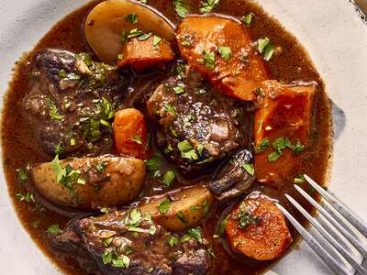EDGE in downtown Sonoma is making waves after morphing from private supper club to full-fledged restaurant last year. Growing up in Arequipa, Peru, chef Fiorella Butron knew her life was unusual. Her mother was Peruvian, with a French great-greatgrandmother. Her grandpa on her father’s side was Italian, and her […]
Delicious!
Delicious!



